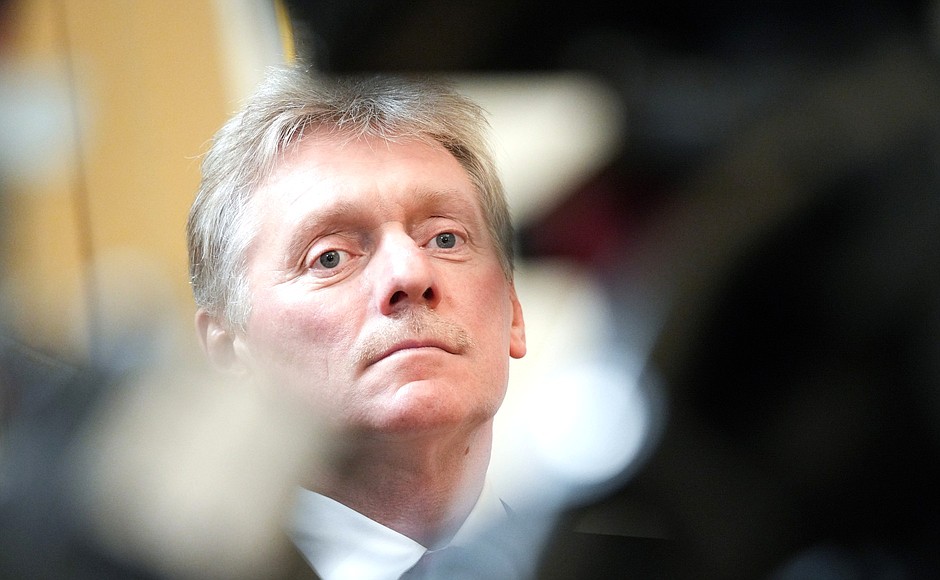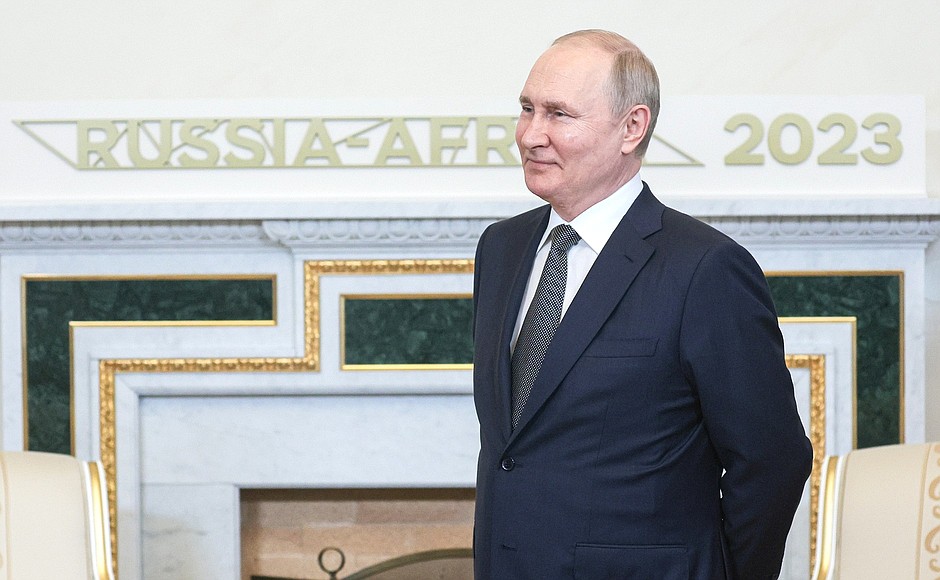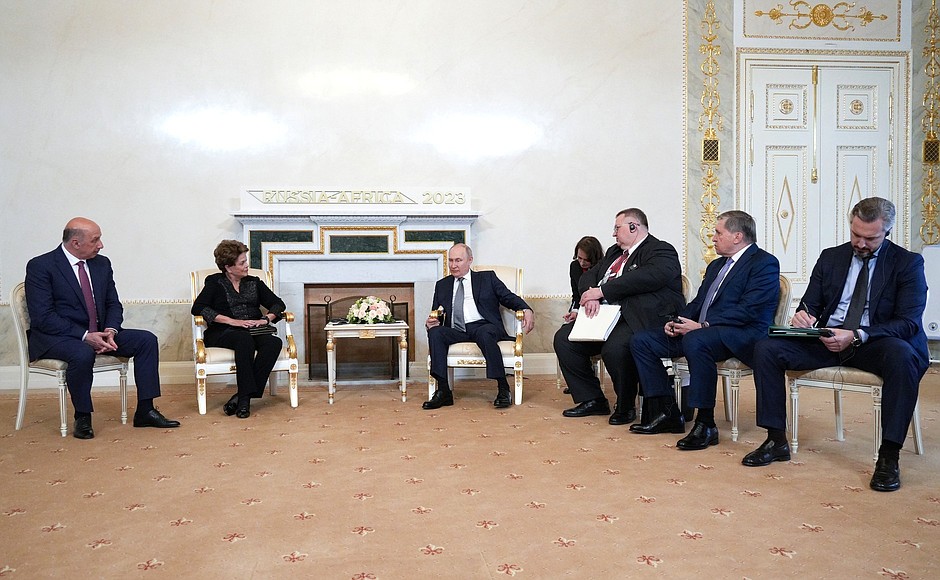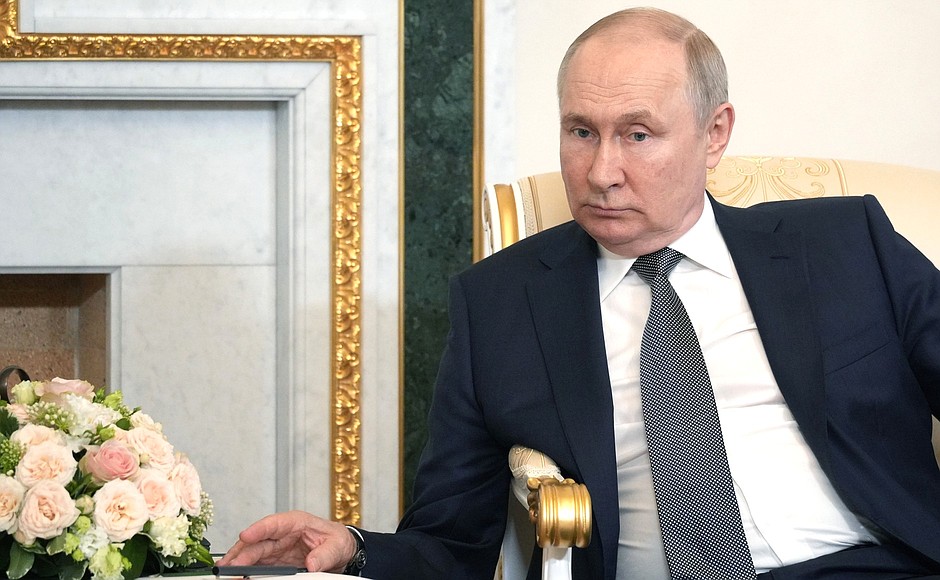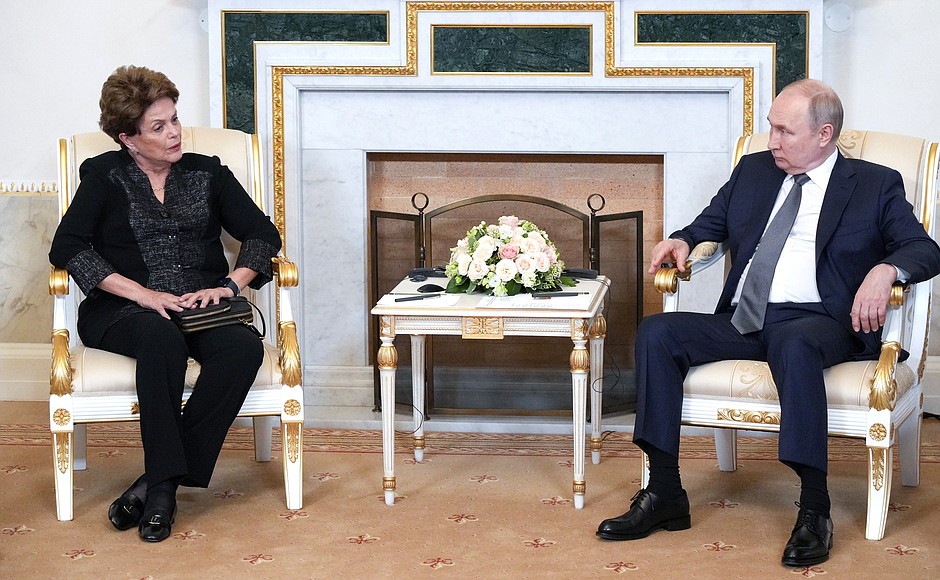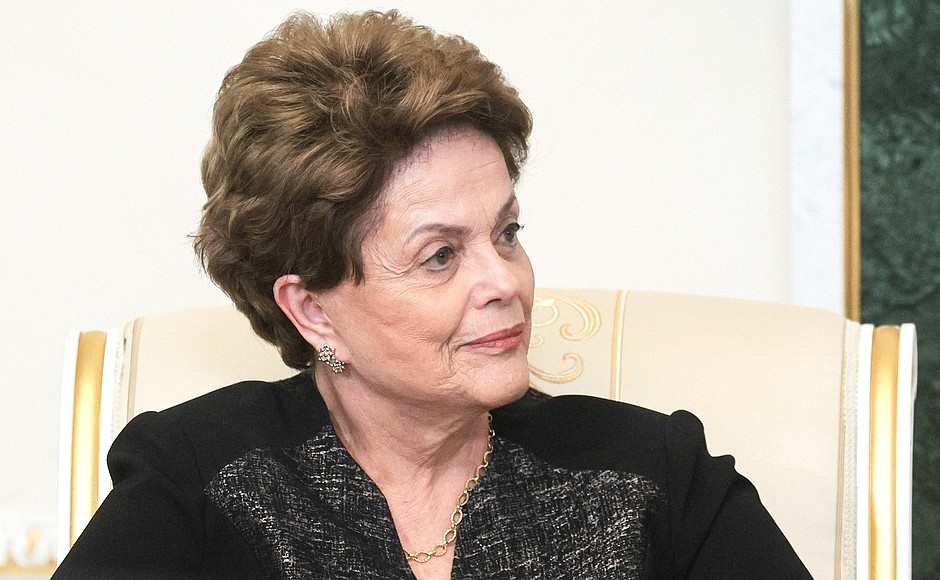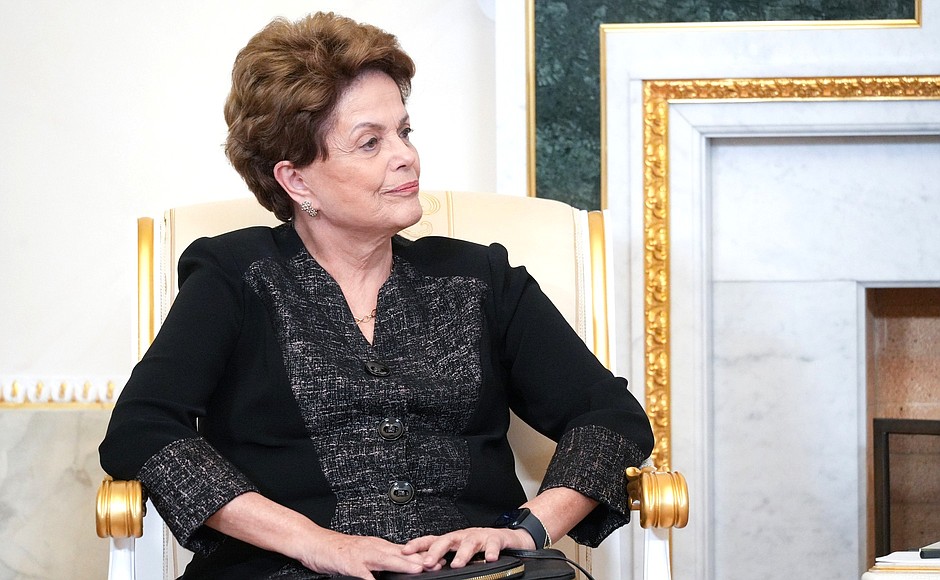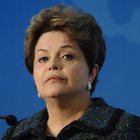President of Russia Vladimir Putin: Ms Rousseff, I am very glad to see you. I remember our contacts during your tenure as President of Brazil.
I would like to congratulate you on your appointment to the position as the head of BRICS’ New Development Bank. I would like to note that in 2014 you and I were among those who initiated setting up this financial structure.
I am confident that, drawing on your vast experience in government work and knowledge in this area, you will make every effort to develop this institution – which I think is essential today. In the current conditions, it is not easy to do so, given the developments in global finance and the use of the dollar as a political weapon.
The members of our organisation, BRICS, do not ally against anyone, but rather work in each other’s best interests. This applies to the financial sector as well. Obviously, we have issues that I will propose for discussion. I will not go into details now; our colleague from the Ministry of Finance will say a few words.
Overall, we are members in good standing of this organisation; we promptly fulfill all our obligations. We know there is a question regarding bank liquidity; there are a few ideas coming from you and your staff, and we will support them.
Our countries in BRICS are increasing the use of national currencies in their mutual settlements. In this regard, I believe the bank can also play a significant role in boosting our joint activities.
Welcome, Ms Rousseff. I am very glad it was possible for you to visit us and discuss all these issues.
Muito obrigado!
President of the New Development Bank Dilma Rousseff (retranslated): I’d like to say that I am very happy to be here again and meet with you. Walking in the halls of this palace, I remembered that I had already been here for the G20 summit. If I am correct, it was held in this palace in St Petersburg in 2013. I am very happy to see you again, and we really stood at the origins of creating the New Development Bank at the summit in Fortaleza in 2014.
Now the world is indeed going through many challenges. There are crisis trends and inflation in the advanced countries, and in the developing world, nations are facing debt problems. Of course, the countries in the developing world are now primarily in serious condition.
Obviously, the Russia-Africa summit is vital for those interested in the development of the Global South. Russia is a very important partner in BRICS and the New Development Bank, and is really fulfilling all of its commitments. And, indeed, the bank is facing a number of problems, primarily concerning liquidity.
The bank should play a major role in the development of a multipolar, polycentric world. We must work to attract investment in the markets of our partners. I also believe that the countries of the developing world can freely make their foreign trade transactions between themselves in their national currencies.
Our development strategy for the 2022–2026 period aims to draw about 30 percent of our funds from domestic markets. It is also very important to attract funds in different currencies, not just dollars or euros.
We are well aware of the difficulties encountered by the developing nations in their bid to attract investment. They need resources to finance infrastructure projects, develop digital and social logistics, and, of course, to reach their goals in environmental protection.
I would also like to welcome the initiative of holding the Russia-Africa summit because we all know that these countries are often short of the necessary resources. Everyone is focused on their debt, ignoring their need for resources. It seems unacceptable to impose certain terms and requirements on them in exchange for funding like multilateral international organisations are doing now.
I would like to finish my welcome speech by saying that the next BRICS summit will be a very important event, in part, for the New Development Bank. One of our priorities is to expand this institution by accepting developing nations in it.
Vladimir Putin: We will be working on this. Thank you.
<…>
